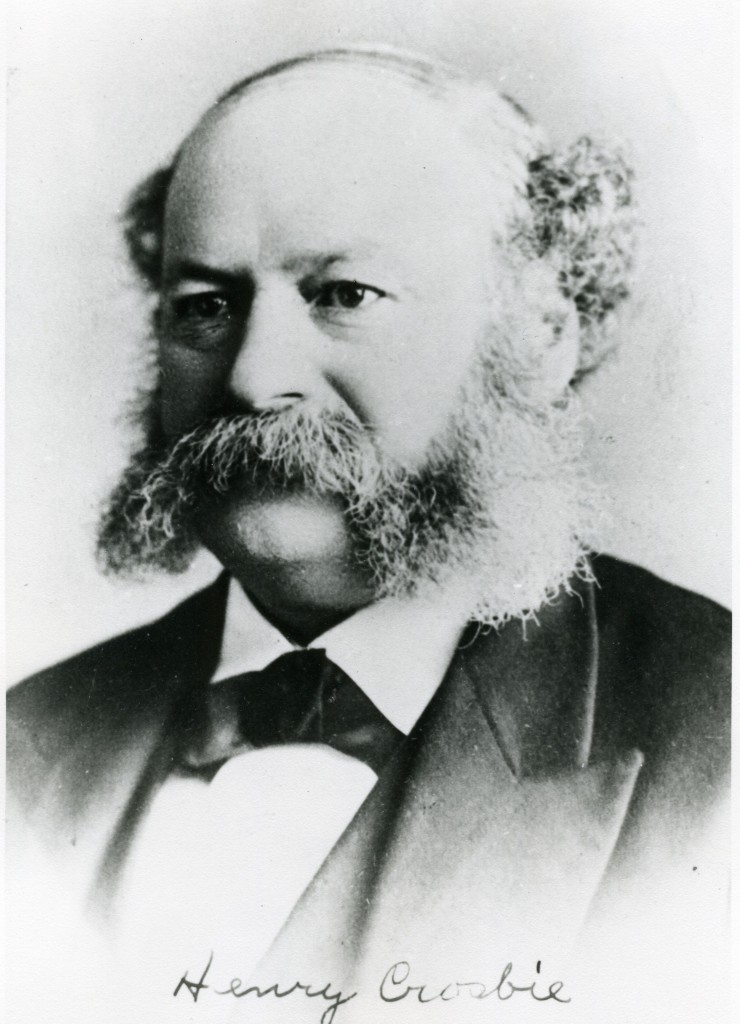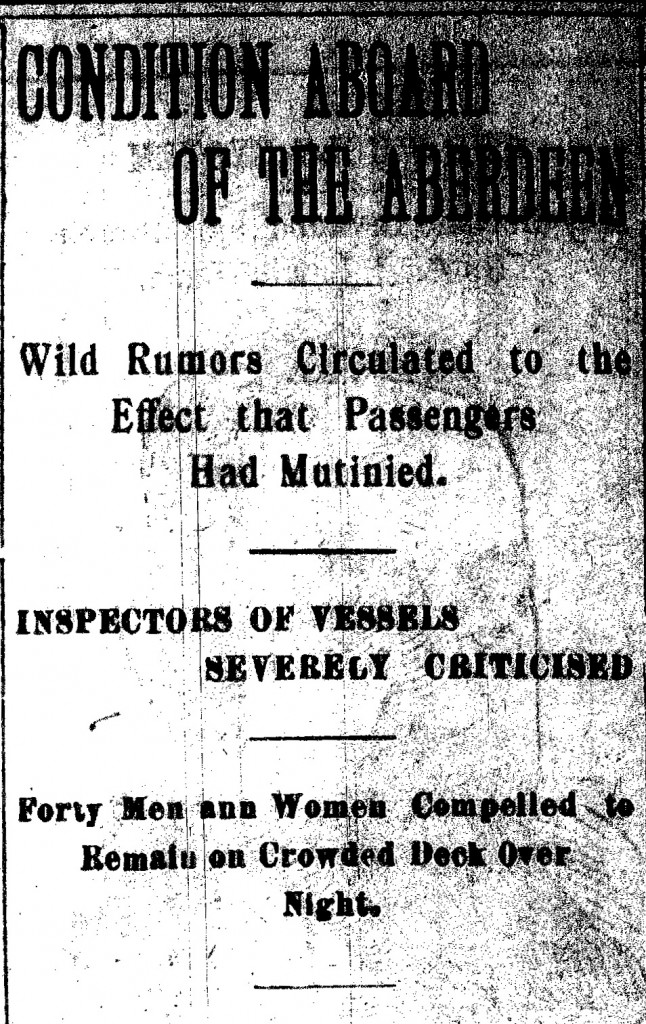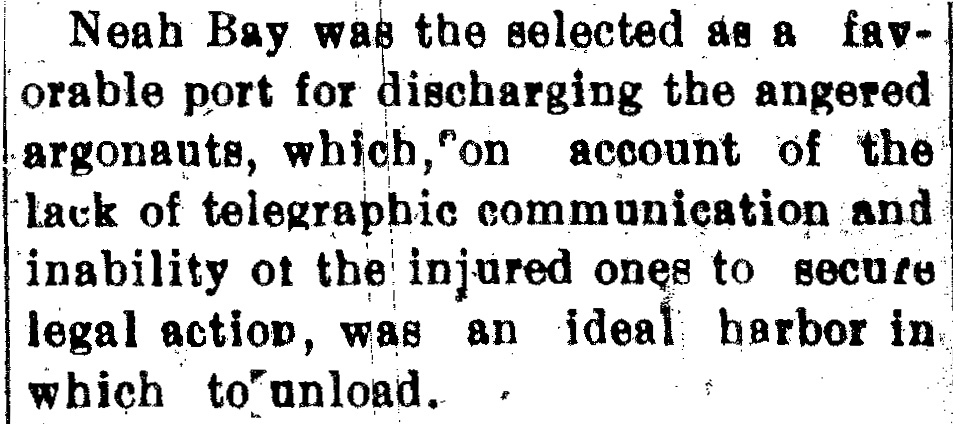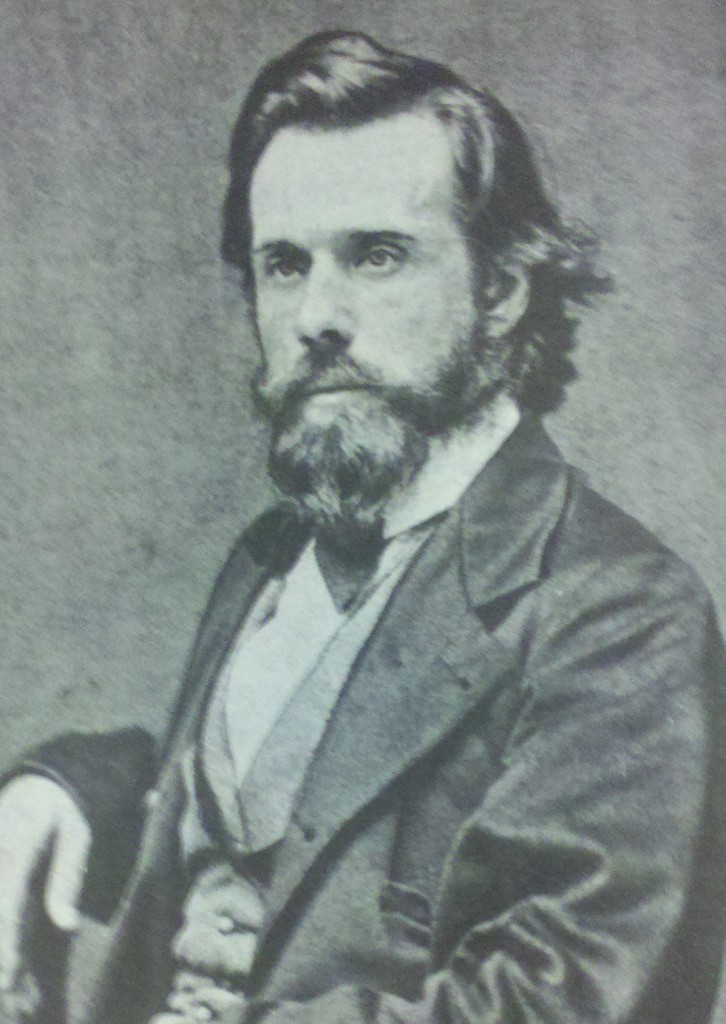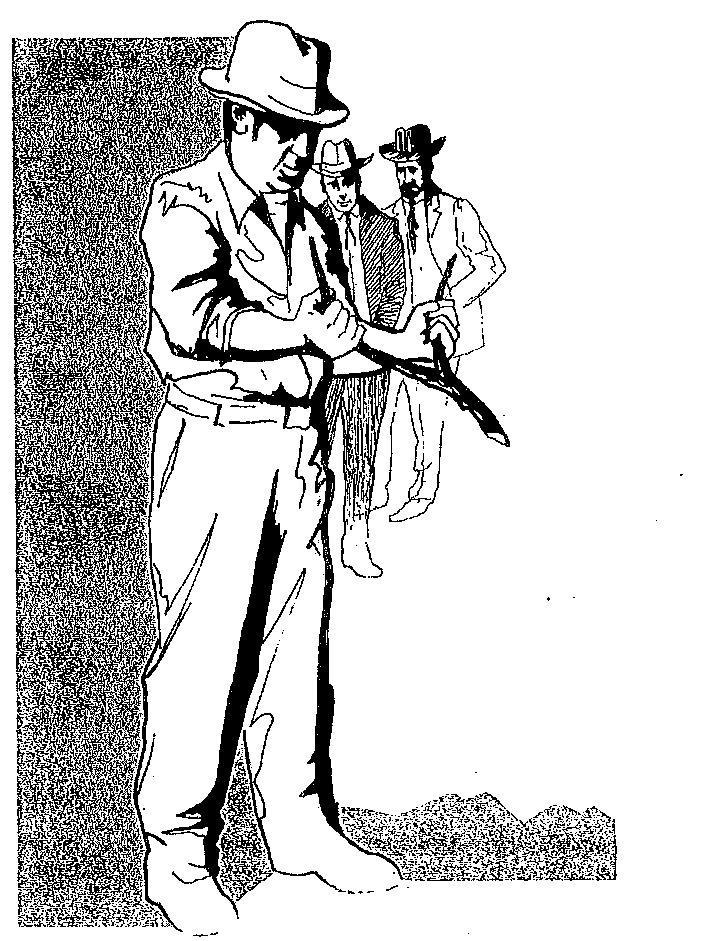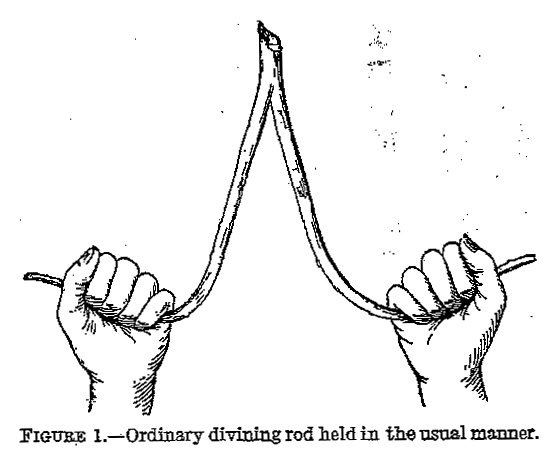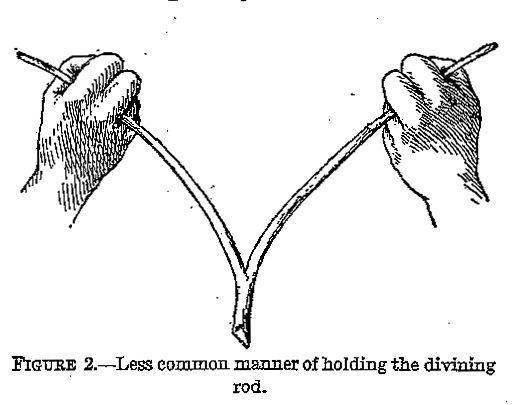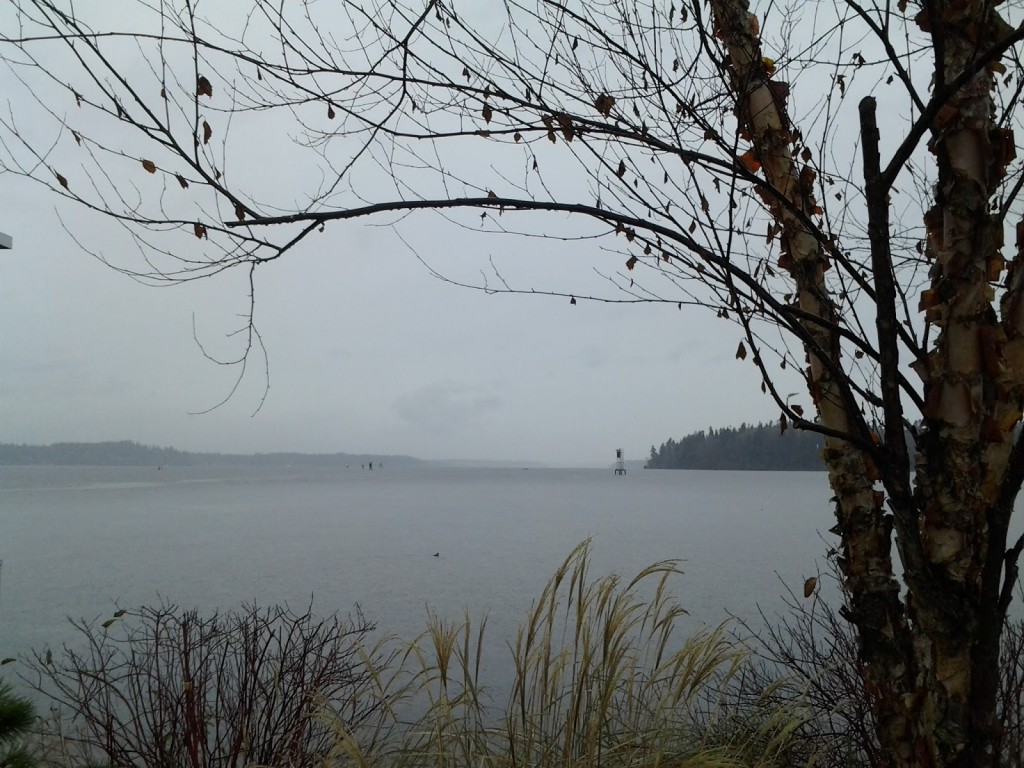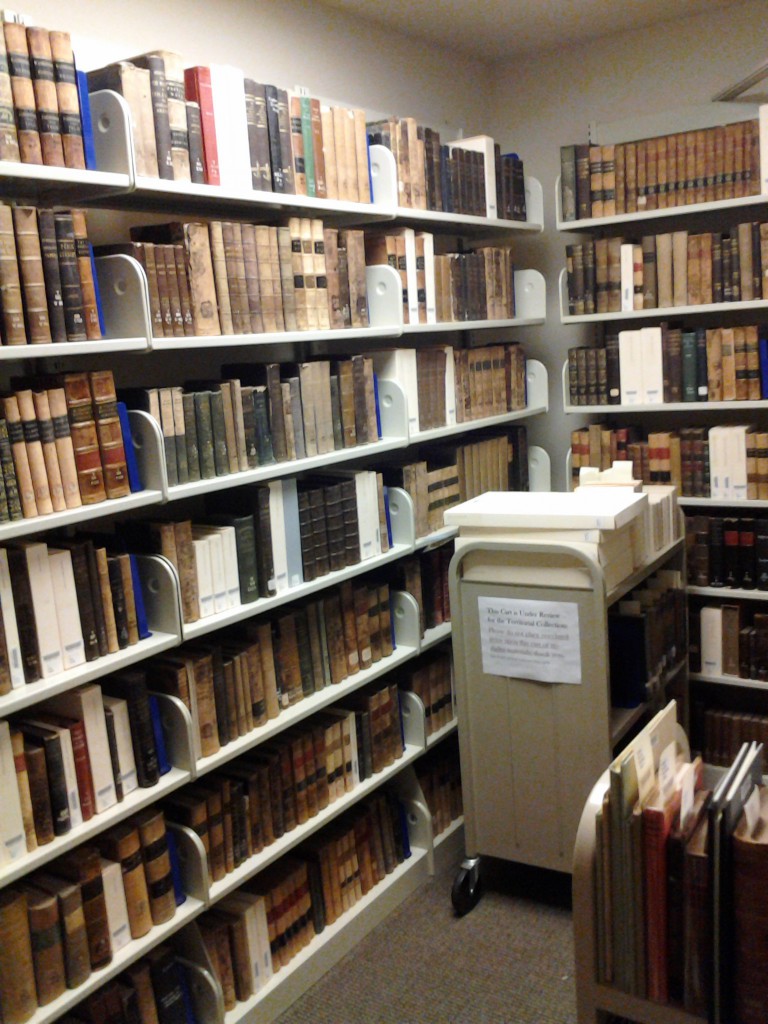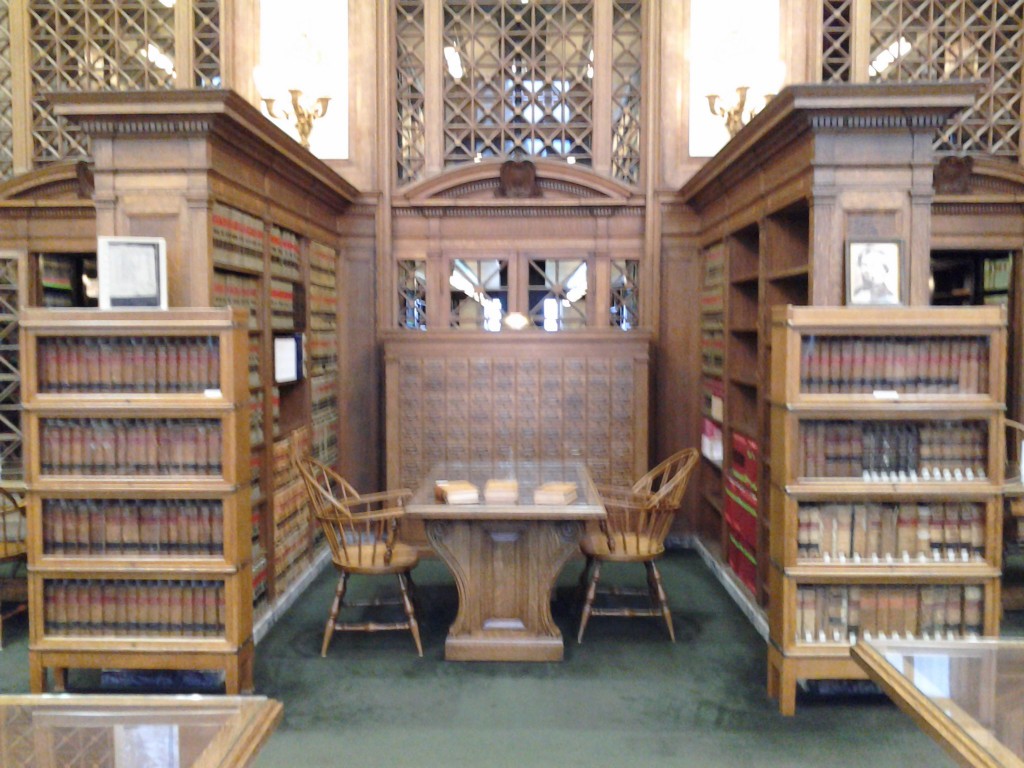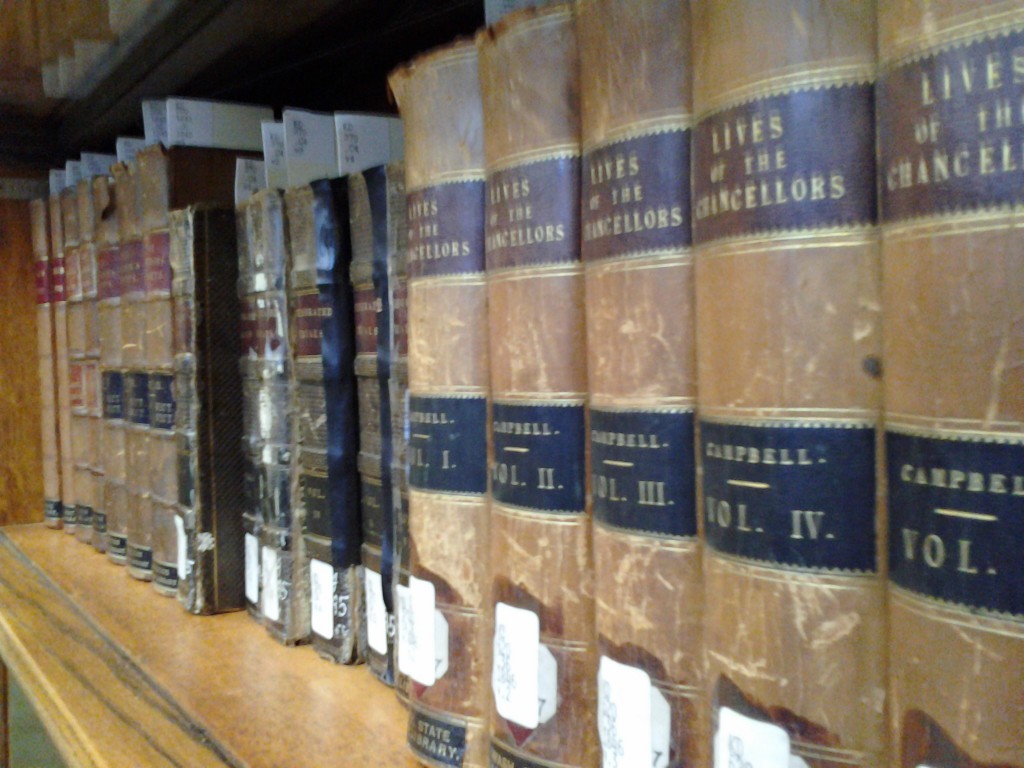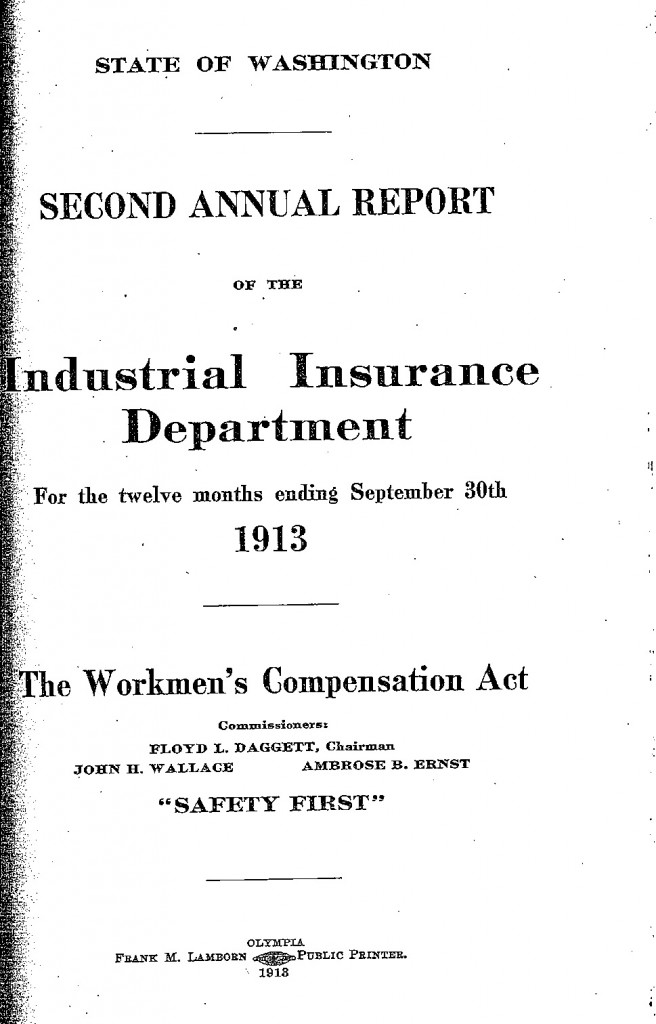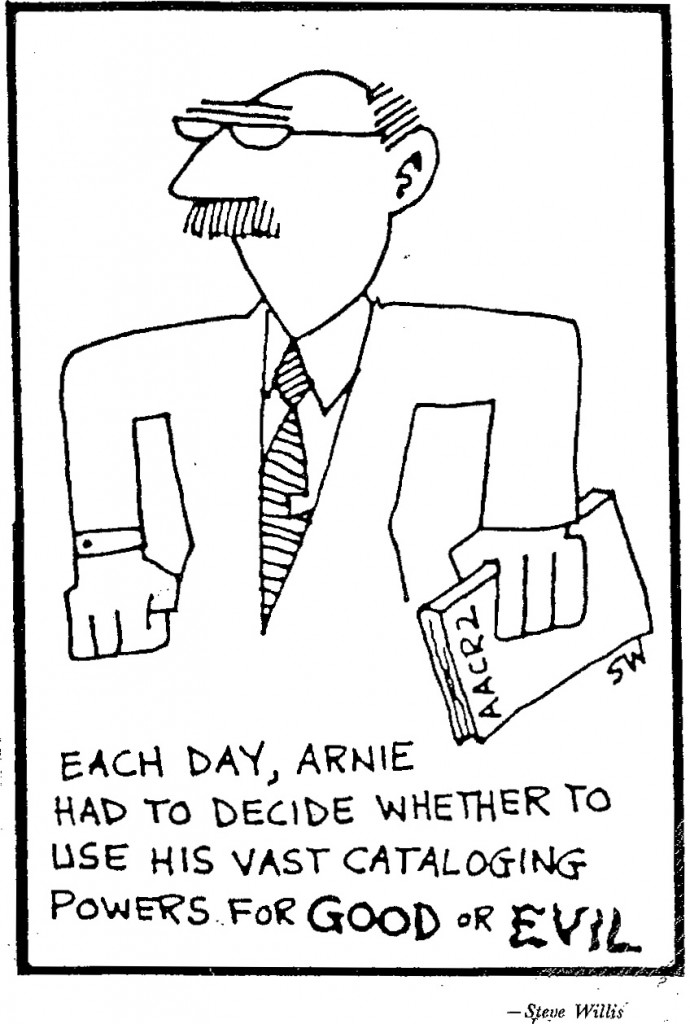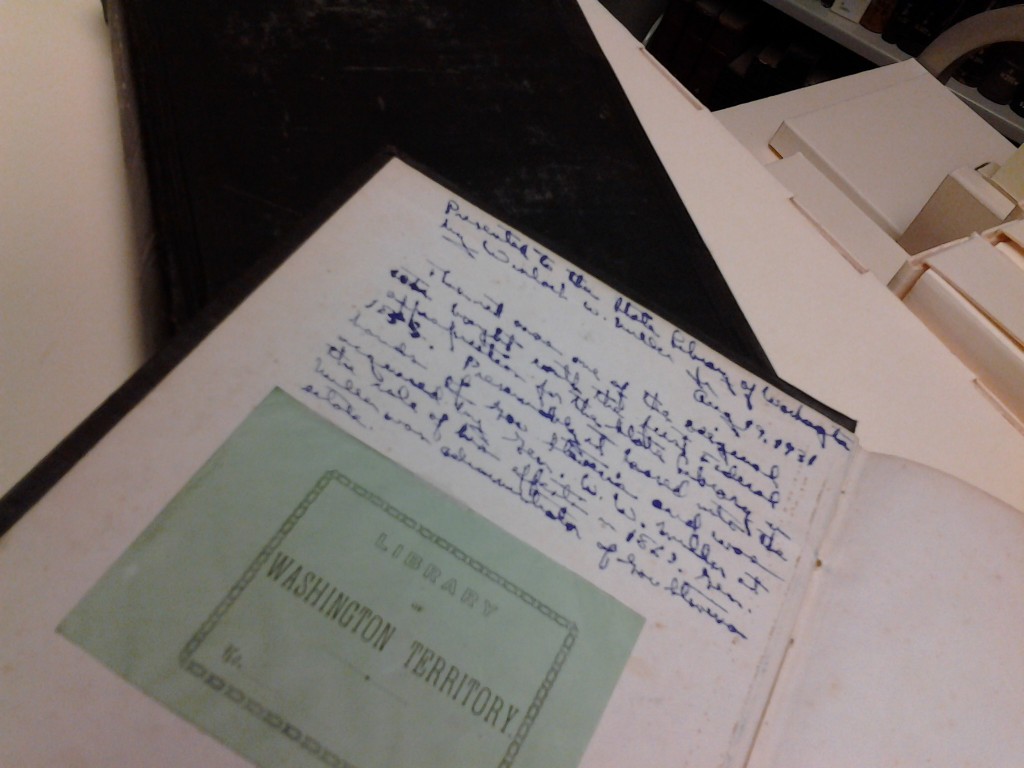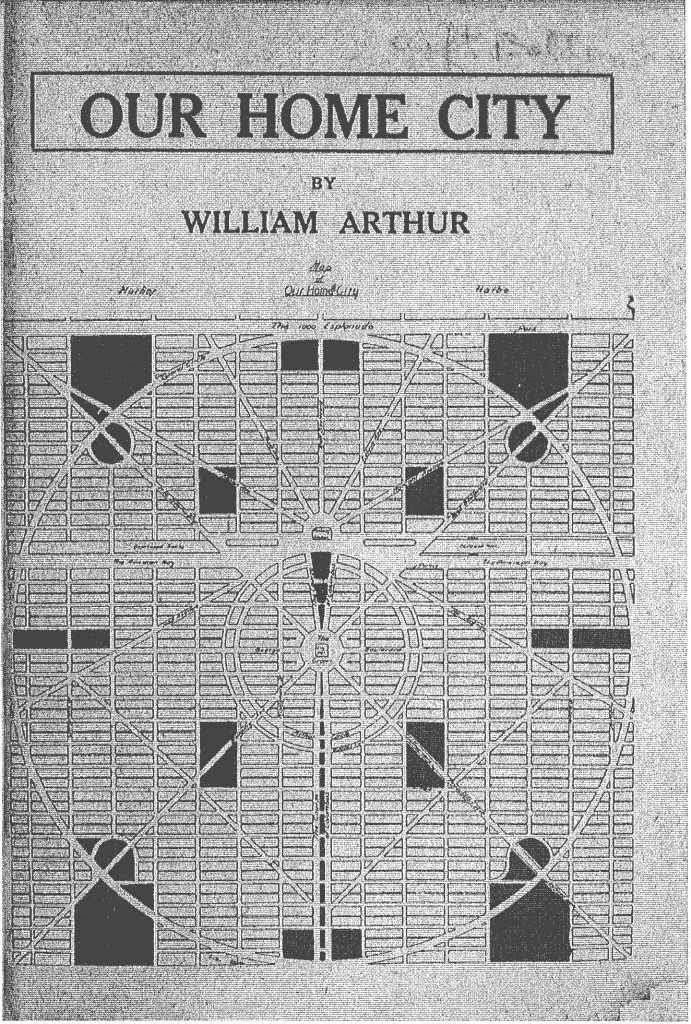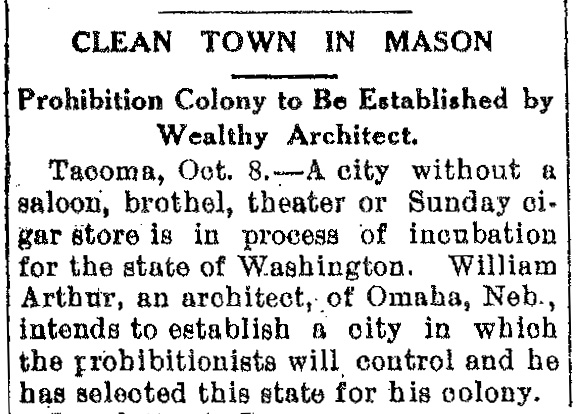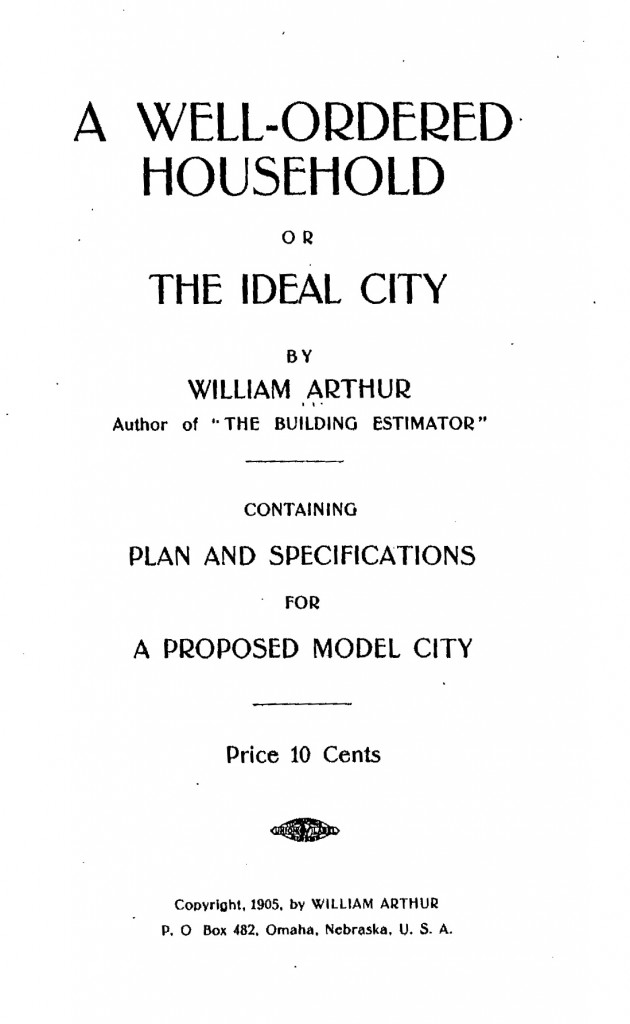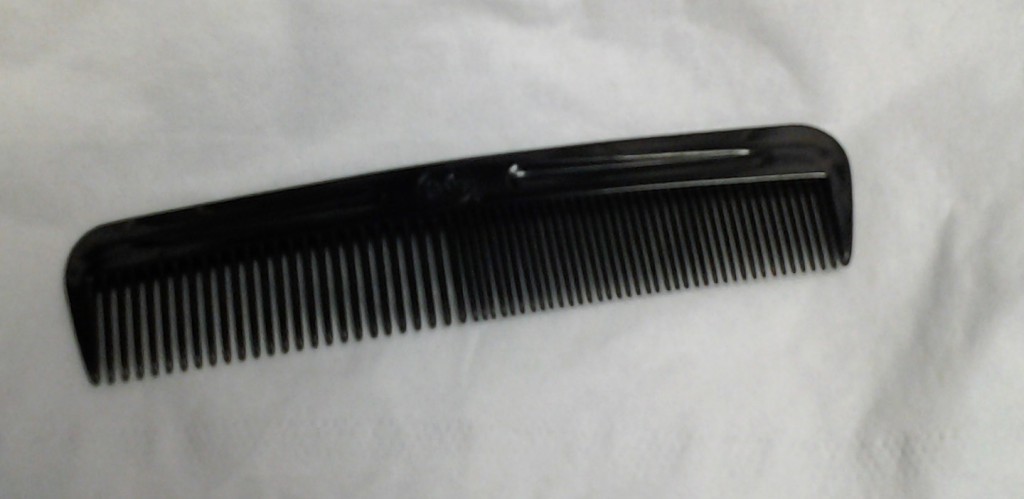 From the desk of Steve Willis, Central Library Services Program Manager of the Washington State Library
From the desk of Steve Willis, Central Library Services Program Manager of the Washington State Library
Yes, I would agree that the telegraph operator profiled in the following article didn’t get out much. A very unusual story found in The Tacoma Herald, July 21, 1877:
Spirit Telegraphy
“PUYALLUP, July 16, 1877.–It was my privilege to visit the office of a telegraph operator a few days ago, and witness some rather novel performances. It was the old story of ‘Spirit manifestation’ repeated. The claim was that the operator ‘could hold telegraphic communications with disembodied Spirits, without the use of wire and battery.'”
“Once comfortably seated in the office, the operator, with whom I was well acquainted,  and whose honasty [sic] every one admitted, began to perform his mysterious feats. His manner of proceeding was as follows: He took a common comb and rubbed it with his hand. He then took a silver half-dollar and called for a spirit by sounds, in the same manner as he would do in the use of the battery and instruments by striking the back of the comb, the call being made in this way: he placed the back of the comb to his tongue while he held in the other a pencil to write down the answer. Directly the muscles of the tongue twitched in regular order, which was taken for sounds and the twitching being interpreted to indicate an answer he wrote, ‘Old Moore.'”
and whose honasty [sic] every one admitted, began to perform his mysterious feats. His manner of proceeding was as follows: He took a common comb and rubbed it with his hand. He then took a silver half-dollar and called for a spirit by sounds, in the same manner as he would do in the use of the battery and instruments by striking the back of the comb, the call being made in this way: he placed the back of the comb to his tongue while he held in the other a pencil to write down the answer. Directly the muscles of the tongue twitched in regular order, which was taken for sounds and the twitching being interpreted to indicate an answer he wrote, ‘Old Moore.'”
“He asked again by telegraphic sounds ‘Where are you?’ The answer came, ‘In hell.’ ‘What are you doing there?’ “I am here to learn to do well.’ Feeling that we were a little nearer the infernal regions than was comfortable we concluded to dismiss Old Moore and call again. In fact we felt a little discouraged that after our many efforts to get to heaven we had brought up in speaking distance of the very place above all others that we wished to shun. Ugh!”
“The next answer was from the spirit of a well known and universally beloved Christian lady who had died in the neighborhood only a few months ago. She said she was in heaven. She was asked whether she would like to speak to me. The reply was ‘No.’ ‘Do you desire to come back to this world?’ ‘Ha! ha! ha! I do not care about it.'”
“At this juncture our proceedings were interrupted by a call from the instrument and we had not the opportunity to continue.”
“These peculiar experiences were had by the operator for several days past. Among the Spirit Telegrams received by the same mode as above, was one that ‘the Russians would be defeated by the intervention of England.’ Another, that ‘the Indians would break out in the Puyallup Valley inside of three days; and that they would shoot this operator for the first man.’ These and many more communications were had. It is impossible to give but these few specimens.”
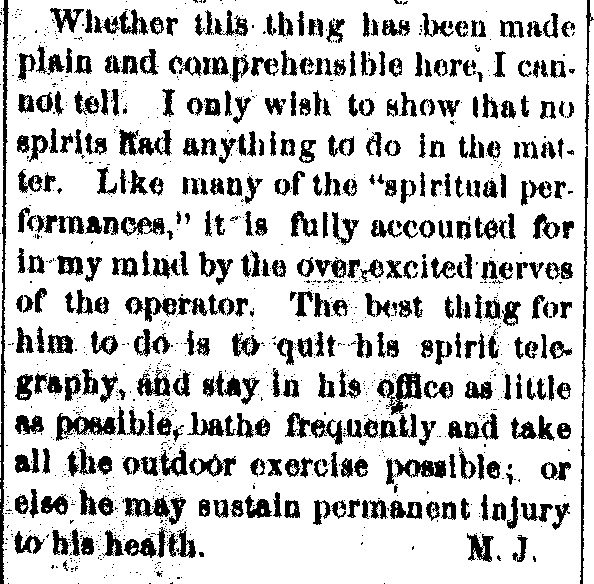 “In trying to account for this curious phenomenon we noted: 1. That the operator was naturally of a nervous temperament to begin with. 2. He remained in his office nearly all day, and slept there at night. 3. His bed and office were charged with electricity, and his system almost bathed in it from day to day. 4. Under these circumstances, he heard of nothing and thought of nothing but the ‘click, click, click’ of the instrument all day long. 5. Anxious to catch the sound and read the messages as they came to or passed through the office, his nerves become interested in telegraphy also. 6. The habit of hearing and reading these sounds became so strong that his nerves were capable of producing them involuntarily. 7. The mind– unconscious to the operator– controlling this nervous twitching, words and even sentences were formed. And so you see that the wondrous mystery and fearfulness which seemed to hang over this office are all dissipated. Overstrained nerves, under the influence of electricity, produced this wonderful phenomenon.”
“In trying to account for this curious phenomenon we noted: 1. That the operator was naturally of a nervous temperament to begin with. 2. He remained in his office nearly all day, and slept there at night. 3. His bed and office were charged with electricity, and his system almost bathed in it from day to day. 4. Under these circumstances, he heard of nothing and thought of nothing but the ‘click, click, click’ of the instrument all day long. 5. Anxious to catch the sound and read the messages as they came to or passed through the office, his nerves become interested in telegraphy also. 6. The habit of hearing and reading these sounds became so strong that his nerves were capable of producing them involuntarily. 7. The mind– unconscious to the operator– controlling this nervous twitching, words and even sentences were formed. And so you see that the wondrous mystery and fearfulness which seemed to hang over this office are all dissipated. Overstrained nerves, under the influence of electricity, produced this wonderful phenomenon.”
“In proof of the theory advanced above, we would urge two reasons. The one is that these strange communications would not cease when the question asked was answered. They would continue right along, changing the subject every sentence or two, and talking the while about unheard of things. This shows that it is the twitching of the nerves. The other is that the communications would cease in the middle of a word or sentence, and then begin something else.”
“Whether this thing has been made plain and comprehensible here, I cannot tell. I only wish to show that no spirits had anything to do in the matter. Like many of the ‘spiritual performances,’ it is fully accounted for in my mind by the over excited nerves of the operator. The best thing for him to do is to quit his spirit telegraphy, and stay in his office as little as possible, bathe frequently and take all the outdoor exercise possible; or else he may sustain permanent injury to his health.”
Weird with a beard, man. The telegraph operator’s very original method of communicating with spirits is made more curious by the fact he apparently was not attempting to do this for profit, thus excluding him as a candidate for the frauds of that era as exposed by P.T. Barnum in his book, The Humbugs of the World : an Account of Humbugs, Delusions, Impositions, Quackeries, Deceits and Deceivers Generally, in All Ages (1865). Barnum had a particular dislike for those who claimed to possess some form of spirit communication.
The reporter’s attempt to explain the telegraph operator’s behavior reads like an early try at developing a psychological profile, adding yet another fascinating twist to this story.
The Tacoma Herald, published in “New Tacoma, Wash. Ter.” had a short life, 1877-1880. WSL has a nearly complete run available on microfilm and like the rest of our newspaper titles, can be acquired through interlibrary loan.







